BLOG
Herniated Disc CAN Heal
I was interested in writing about this topic after one of my patients was told their disc herniation would never go back to normal. This patient had very minor symptoms of occasional numbness and pain that got better with time (as most do) but was involved in a car crash so wanted to consult with a physician.
September 5, 2022
Dr. Donald Mull, DC
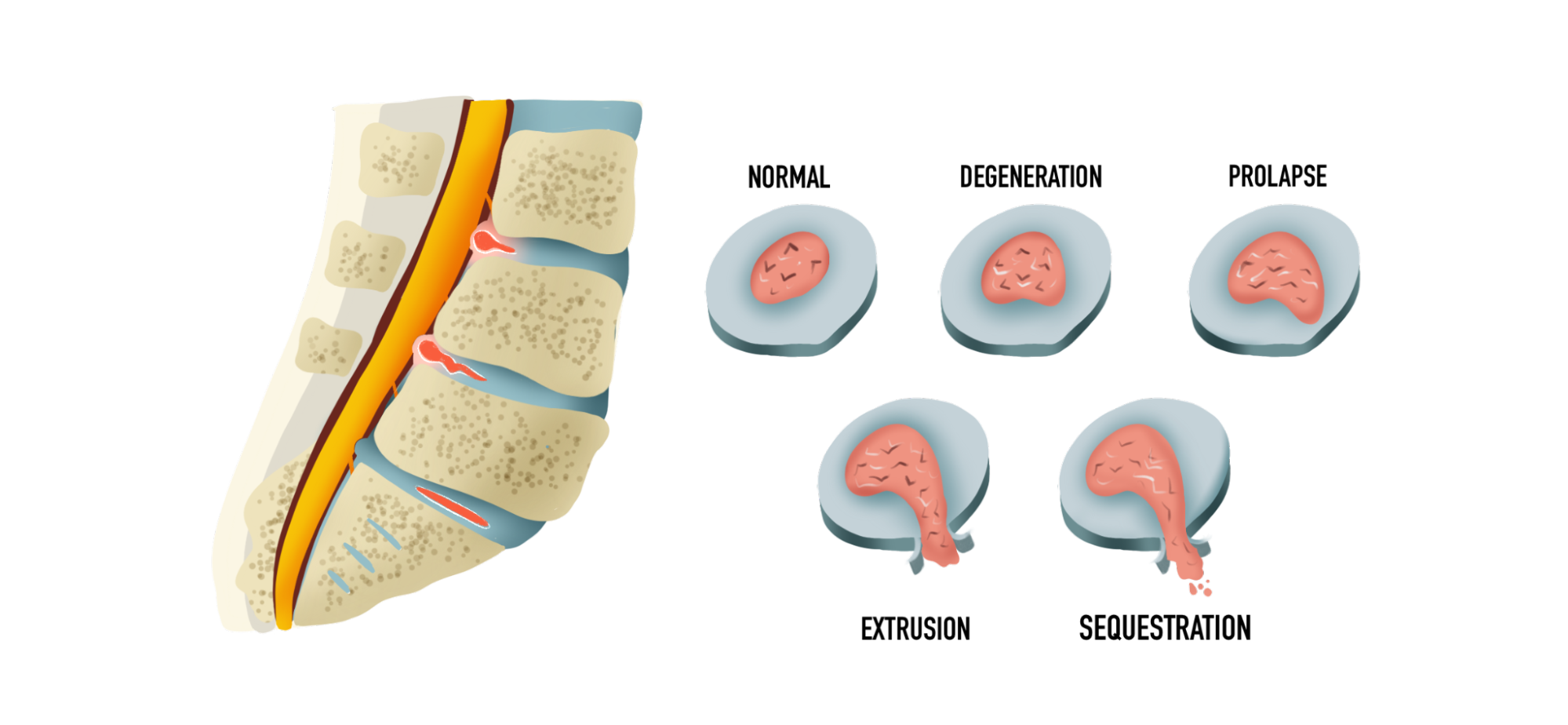
I was interested in writing about this topic after one of my patients was told their disc herniation would never go back to normal. This patient had very minor symptoms of occasional numbness and pain that got better with time (as most do) but was involved in a car crash so wanted to consult with a physician.
The orthopedic specialist saw he had a disc extrusion (specific type of disc herniation that you can see in the image in this article) after taking an MRI and proceeded to tell him that his disc would not heal and never look the same as it was before. This is not just poor advice, it is straight up wrong.
It is advice like this that scares people into overprotecting their body while removing themselves from activities that are important to them. Disc herniations are very common and can be considered natural aging (hence why we see them in populations with ZERO pain).
Are Disc Herniations Common?
Disc herniations are quite common and their association or correlation with pain has been broadly misunderstood. Many people walk around with disc herniations with ZERO pain or disability.
When I say many people have disc herniations, I am not kidding. About half the PAIN FREE population over 30 years of age have disc herniations. In a room of 10 people that do not complain of any low back pain whatsoever, about 5 are sure to have disc herniations.
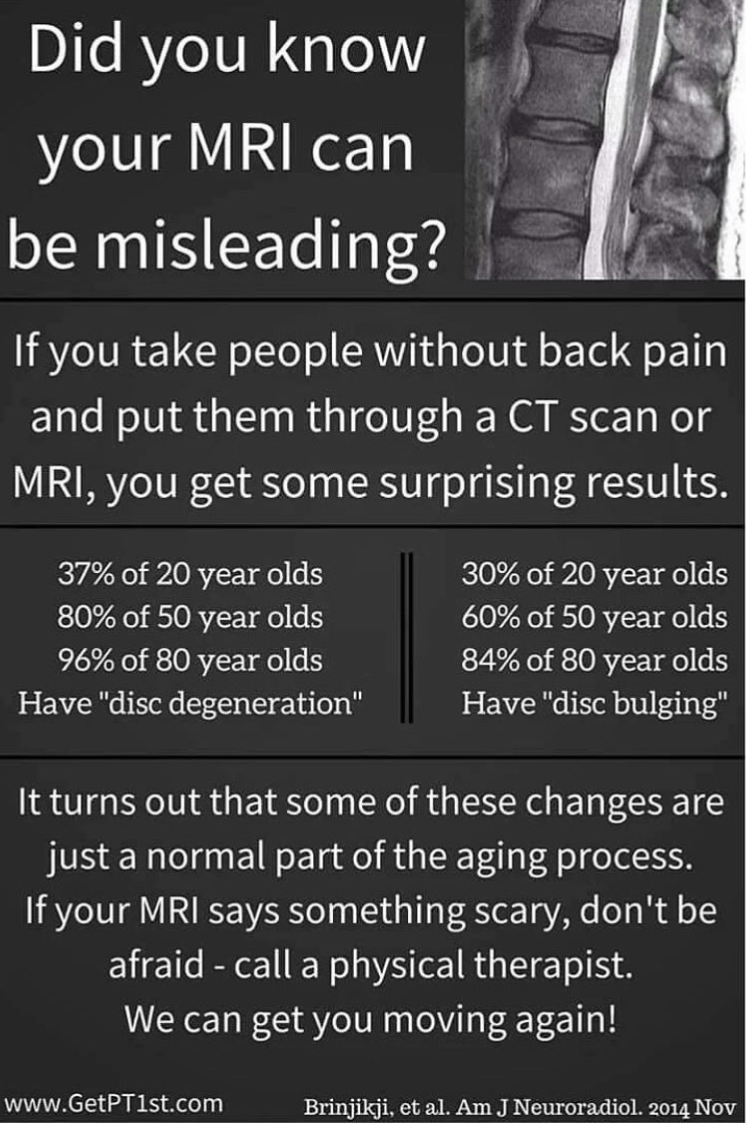
Physicians saying erroneous things like your disc will never look the same again can lead one into thinking disc herniations are serious and need intervention. I would like to set the record straight and say for the most part, disc herniations are not serious and the best thing you can do is return to valued physical activities as much as you can tolerate.
Are Disc Herniations Serious?
Having a disc herniation does NOT mean you will have back pain and not having a disc herniation does NOT mean you will have no pain. This concept is important to remember when you have pain because this pain does not mean you are hurting your herniated disc or making it worse. (Remember the correlation between herniation and pain in general is VERY poor).
The size of disc herniation does not correlate strongly with the amount of pain someone feels nor the amount of disability they experience. Having a herniated disc nor the size of the herniation alone can tell us if that person will have pain. You can have what is considered a big hernia and not experience pain. Doesn’t sound that serious, does it?

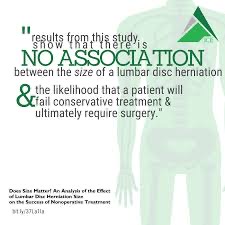
So it may be safe to say that a change in the disc shape is a part of normal aging or even just a normal occurrence of living your life. If you have been diagnosed with a disc herniation via an MRI, this should give you some hope. This isn’t meant to down talk how miserable symptoms of back pain can be and the toll it can take on someone’s life. The struggle bus can be very real. However I will argue that the presence of a disc herniation needs to “change” in order for one to decrease their back pain. Besides, discs heal over time just by living a normal life.
Can My Disc Herniation Heal?
Discs absolutely heal. As a matter of fact we know that the larger the disc herniation, the MORE likely it is that the disc will heal. Remember that story I told you about my patient and how a physician told him that his disc extrusion would never heal? Well science disagrees considering there is a 70% chance that within 12 months that herniation will have gotten smaller AKA healed.
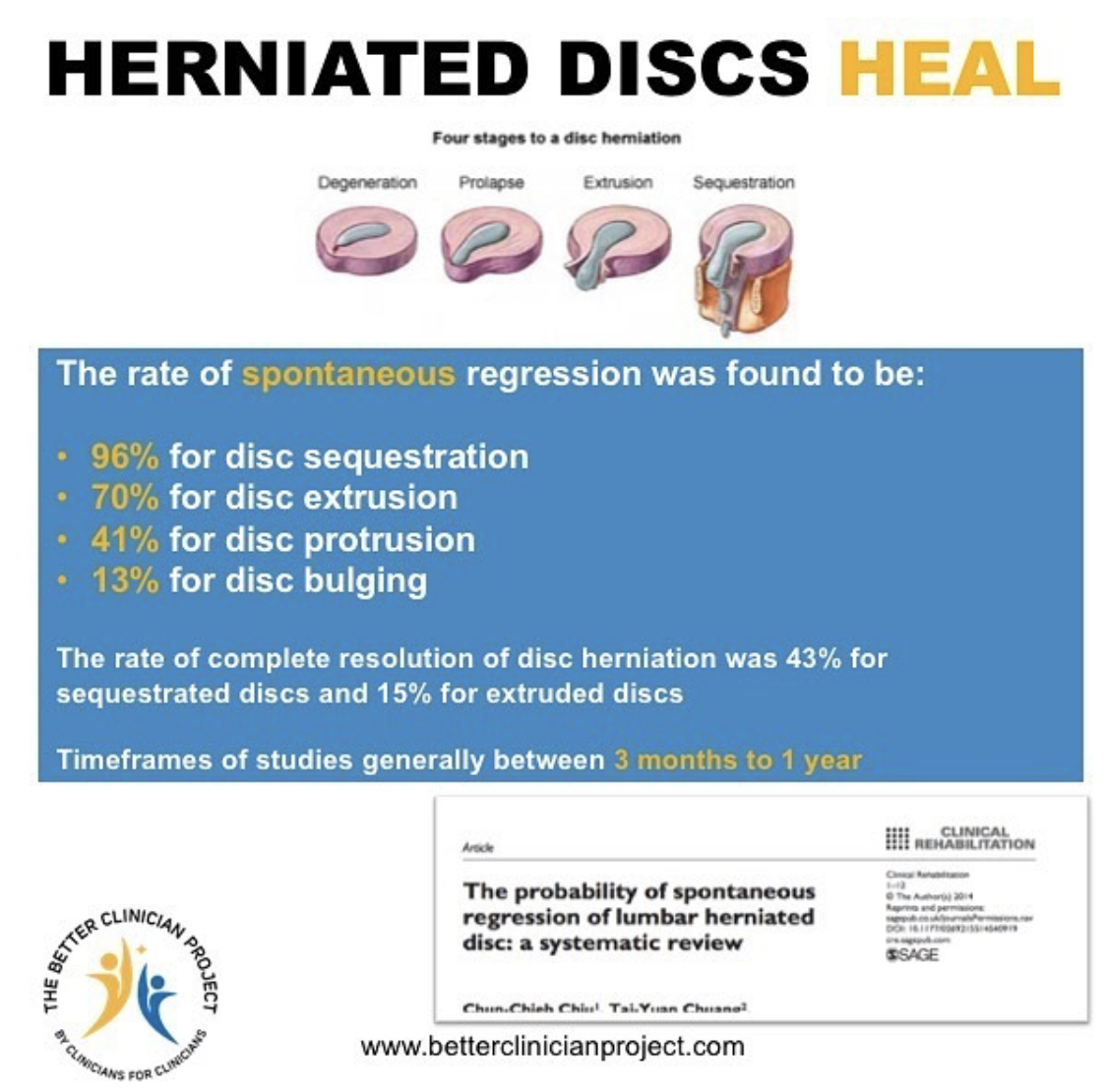
Why do the larger disc heal at higher rates? Science has its theories - I always picture our immune system going into “Oh Sh*t mode” and sending the entire army at this thing. Remember that cartoon movie Osmosis Jones? That is how I envision our macrophages, cytokines, etc (yeah, I am a nerd). Below is a way more “realistic” depiction of the smack down your body puts on disc herniations.
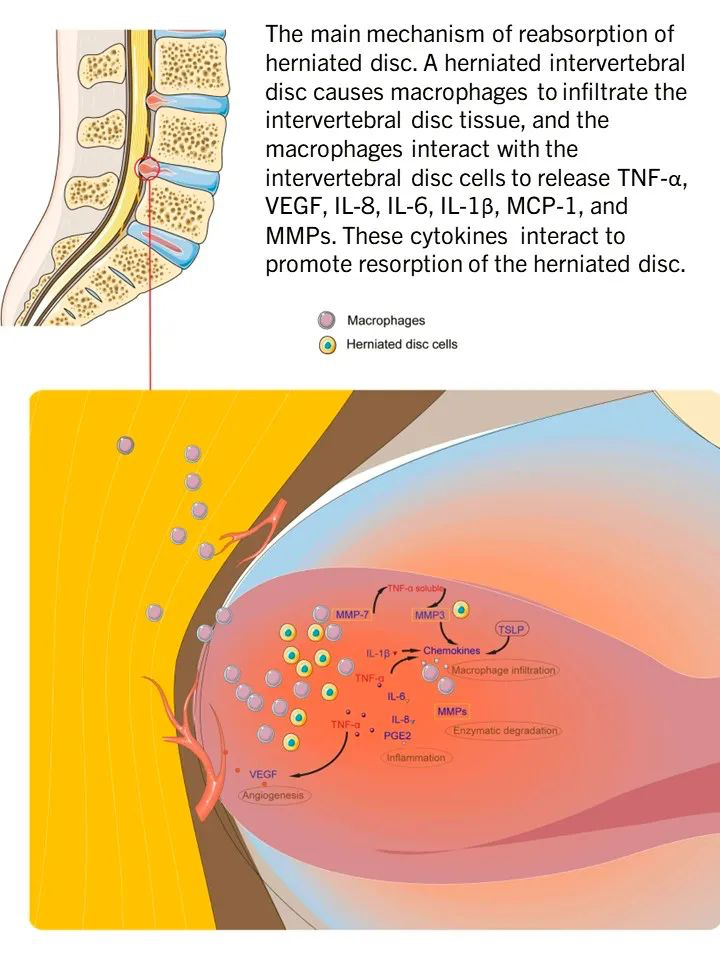
Moral of the story is, our discs one hundred percent can and oftentimes do heal (at least to some degree) and the bigger the herniation, the more likely it is to heal. If your doctor has told you otherwise, they are wrong. This is not my opinion, this is science.
If you have Sciatica symptoms, this may complicate it a bit so we will stick to disc herniations. If you want to learn more about Sciatica here is a great article that dives much deeper into details and provides great guidelines.
How Can I Heal My Herniated Disc?
You can do nothing and live your normal life. That’s right, this study shows between 3 months to a year later your herniated CAN get better and in some cases COMPLETELY regress back to normal.
Doing nothing may not always be doable for you if there is concern or fear when it comes to resuming your normal valued activities. That is completely understandable (this stuff can be overwhelming).
This is a great time to seek out a professional that you can work TOGETHER with to create a plan that works for you and your lifestyle. This plan should aim to get you back on track to moving and living with less limitations and becoming confident in your back to get back to kicking life’s ass again.
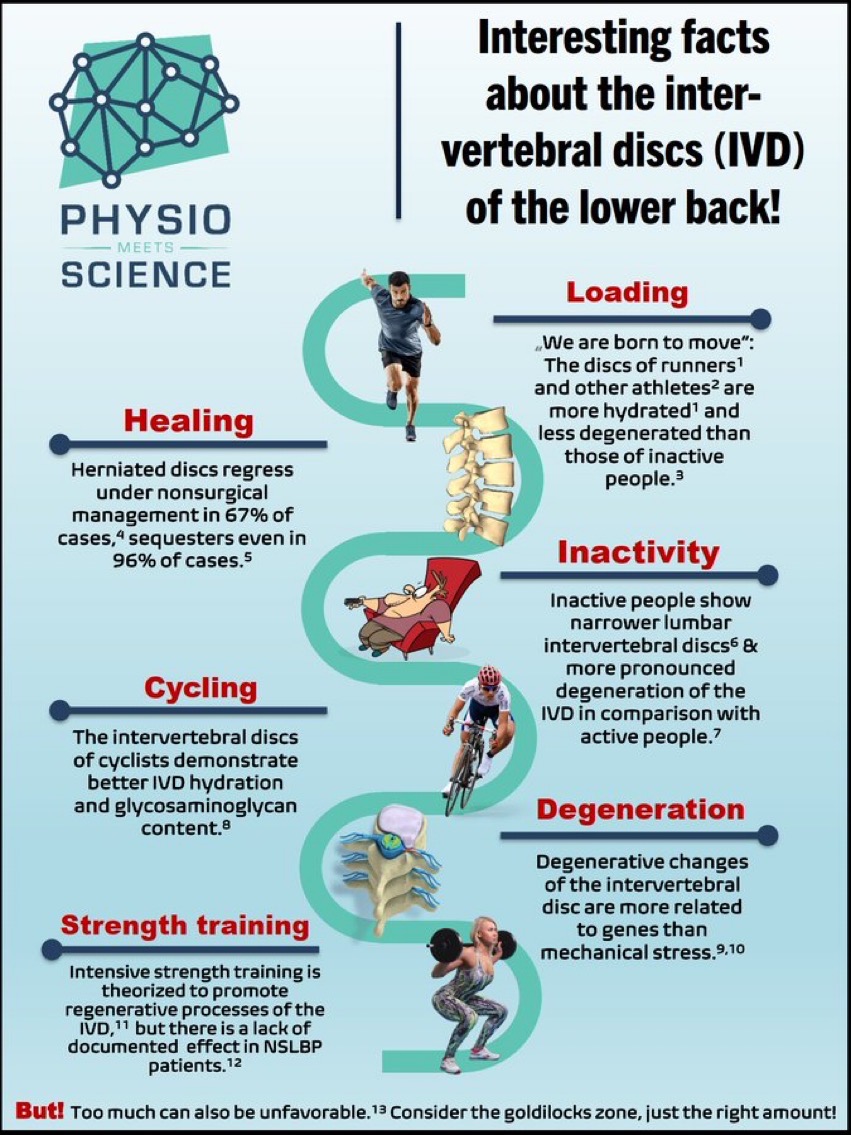
You CAN be physically active and it is SAFE. Some discomfort is normal; you are still safe and you are likely not harming your body.
We have created a nice little starting point for you to kickstart yourself back into doing your normal activities. It is 10 weeks of progressed exercises we have seen help those who have back issues. Make sure you pair it with doses of walking and other physical activities that you enjoy. (Remember you do not need this exact template to get better - it is just there to help you out, it isn’t a magic fix. You are STRONG and RESILIENT).
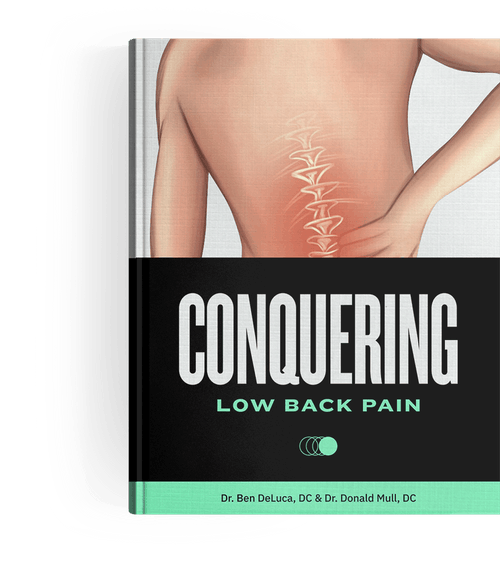
This e-book is designed to help those who do not have a long training background and may be worried about movement in general. That said, it can be useful for those meatheads like us - just progress at your own pace through the 10 week program.
Sources:
Related Posts
The Patient Experience: What You Can Expect Working with Kinetic Impact
"My pain got the point it was impacting my ability to stay active..." My lower back had been hurting off and on for more than...
Read more
Why does my shoulder keep hurting?
You are not alone: Shoulder injuries are one of the most common injuries, especially those who are active, are overhead athl...
Read more
Why Your Mid-back is Killing Your Golf Game
What is the “Thoracic” spine? The thoracic spine is simply the mid-back located in-between your shoulder blades. It is the p...
Read more
Search the Blog